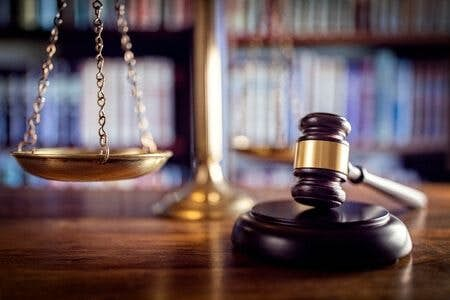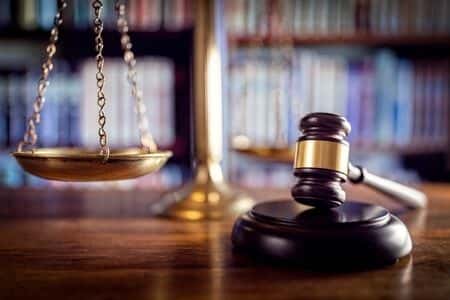As expert witnesses’ roles in litigation become increasingly important, so does the manner in which attorneys converse with said experts. Therefore, we’ve compiled a number of cross-examination tips for questioning an expert witness. While finding the right expert is a critical part of the process, how you interact with the opposing side’s expert(s) can be just as important. In order to help provide context for your case, expert witnesses can address different elements of fact. By combining their experience and education they can help to assert their findings. Conversely, the opposing side will also have expert witnesses. They will likely be highlighting points that directly contradict the evidence offered by your experts. In this way, understanding these cross-examination tips can be invaluable when helping to highlight your expert’s assertions.
Tip #1: Be prepared
The most basic of the cross-examination tips, but also, arguably, the most important is to be prepared. Expert witnesses are brought into litigation because the subject matter is inherently complicated. For example, in recent cases involved in medical devices, there were over twenty expert witnesses (many of them medical expert witnesses) per case. Each of them with their own specialized field.
Overall, it is difficult subject matter, and research, from the attorney’s vantage point, is the best way to effectively question opposing experts. Do your homework before questioning the expert. Keep a notebook filled with research information on the topic at hand. Include the specific expert witness who will be cross-examined. Where does he/she work? Where has he/she worked in the past? Does he/she have all of the credentials that he/she purports to have? Background information will prove useful in punching holes in an opposing counsel’s expert witness testimony. This, however, does not have to be an isolated endeavor. Communicate with your own experts to gain insight into their subjects. Specifically other viewpoints that, though they may not agree with, they have encountered. Discussing the finer points of your own expert’s experience can provide insight and ideas for cross-examining the opposing side.
Tip #2: Have a plan
While being prepared is the most important element of any case, without structure, it may go to waste. Taking a systematic approach both in the presentation of your expert, and in your questioning of the opposing expert, can assist the jury in understanding the intricacies that you hope to get across. If you attempt to question the expert witness in an unorganized manner, you risk sporadically jumping from point to point. Which confuses the jury, or worse, appears disorganized, making it more likely that the opposing counsel’s expert testimony will be accepted.
Make sure you know exactly where you want to start, the direction you want the questioning to go, and perhaps most importantly, when to finish. If the expert is being evasive, do not get frustrated and back down. Instead, push until you get your answer. Or until it becomes clear that the expert is being ambiguous or trying to avoid the question. It should be noted, however, that this is a fine line. If you push too hard, the jury may view you as pushy or overly aggressive, which can alienate them. Strike a balance between being understanding, and remaining assertive. A dichotomy that becomes easier if you have a developed and effective plan.
Tip #3: Ask fact-specific, cross-examination questions
When cross-examining the opposing expert witness, their specialty is half of the equation. Because of their inclusion by opposing counsel, they likely have assertions that differ from those of your own expert. One way to flesh this out, to contrast with elements of your own expert, is to ask fact-specific questions. Ask questions related to the individual circumstances of the case, and how those factors relate to the expert’s analysis.
In many cases, experts, in arriving at their conclusions, do not consider an item that may be relevant to a case (or is an element that your expert believes to be important). Bring this up when questioning the opposing expert. Inquire as to why the expert discounted a certain factor, or the applicability of their methodology on the facts of the case. For example, if the case involves accident reconstruction, and an engineering expert witness is asked to comment on the facts of the case, questioning the expert on their experience with the vehicles in questions, the applicability of their methodology in different weather conditions, and other questions related to their knowledge of the individual facts of the case can be helpful.
Tip #4: Never ask a question you don’t know the answer to
When planning out your questions, part of the research element is understanding what to ask, as well as what the expert should say in response. When questioning an expert (whether it be direct examination or cross-examination), you are essentially trying to create a narrative for the jury. Expert testimony is one component of the overall point that you would like the jury to use to analyze facts of the case. As such, understanding the probable responses that your questions will elicit during cross-examination, in order to help illustrate the picture you try to convey, is extremely advantageous. Understanding the direction the questioning will go allows you to be in control. Which better assists your own expert and your client.
Tip #5: Listen to the answer
Lastly, carefully listen to everything that the opposing expert witness says during cross-examination. If you have carefully prepared, researching the subject matter and the opposing expert who will be cross examined, there is a danger of “running through the motions,”. Attempting to casually go from one talking point to the next.
The information may be redundant to you, but it’s new for the jury, and you should be conscious of this. Treat the information revealed during the cross-examination properly, as relevant items to assist the jury. The jury will take note of all characteristics of your questions and the expert’s answers. You should take note of the expert’s answers, more specifically the different tonal and cadential characteristics, understanding that the jury will also notice them. If the expert witness appears flustered or argumentative at certain points, attempt to discover while this may be. By focusing on the answers that you receive during cross-examination, you can help to implement the plan you worked on, and best illustrate your items to the jury.




